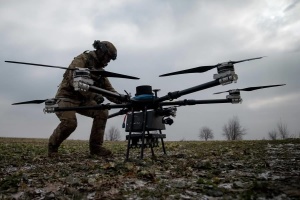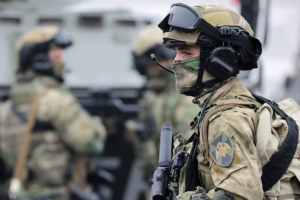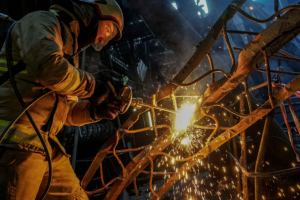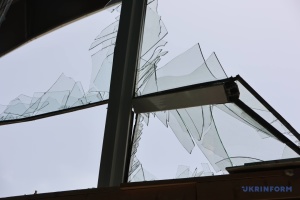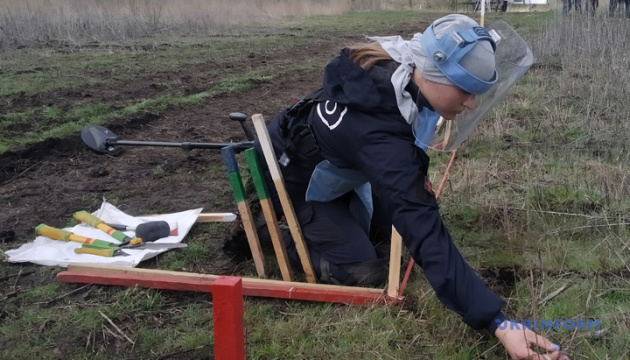
From hairdressers to deminers: how HALO Trust is demining Mykolaiv region
Mykolaiv region is one of the three most heavily mined regions of Ukraine. International partners are helping to clear its land of deadly Russian hardware. The team of The HALO Trust, the world's largest humanitarian demining organization, has been working here for a year.
First of all, they focus on the territories that were under occupation or in the area of active hostilities. Recently, the first 13 demined areas with a total area of 360,000 square meters were handed over by the HALO Ukraine team to the communities of Bashtanka district for further use in agricultural production. From now on, local residents will be able to use this land again: grow crops, work in gardens or graze cattle.
The signing of the relevant documents took place in a solemn ceremony on one of the demined fields near the de-occupied village of Novopetrivka. Our correspondent was there.
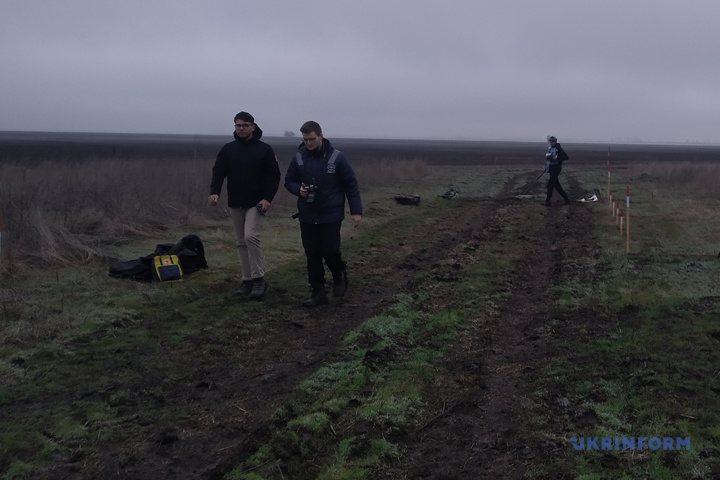
THE FIELD WAS A MINEFIELD, IT WILL BECOME A BREADFIELD
Our journey from Mykolaiv to Novopetrivka began on a cool, cloudy morning. Usually, cars are often stopped and inspected at checkpoints on the Bashtanka highway, but the HALO Trust logo is already well known here, so they let us through without delay. When we turned onto the road to Snihurivka, we noticed fields with green winter crops. This was very pleasing, because last spring there were still tall weeds growing here, under which dangerous ammunition was "disguised".
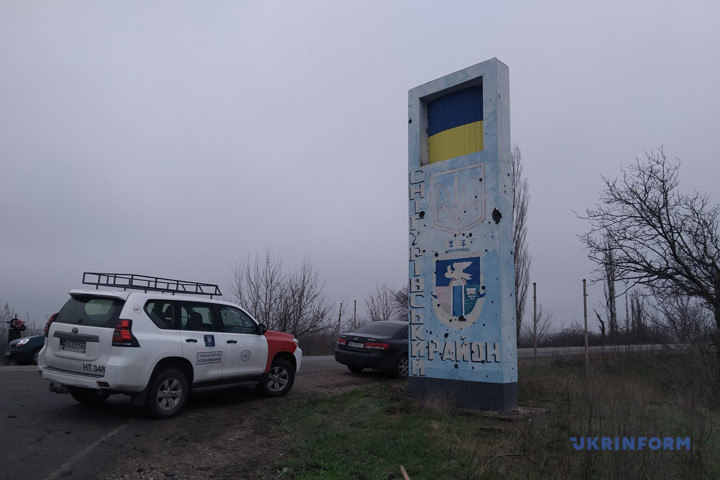
The day before, it had rained heavily in the area, and the area where the event was planned to take place was completely "sodden," so when we got out of the cars, we found ourselves in mud. At the extreme meters of this field, there were pegs - the sappers' markings that they had not yet managed to remove. Nearby was equipment for manual demining.
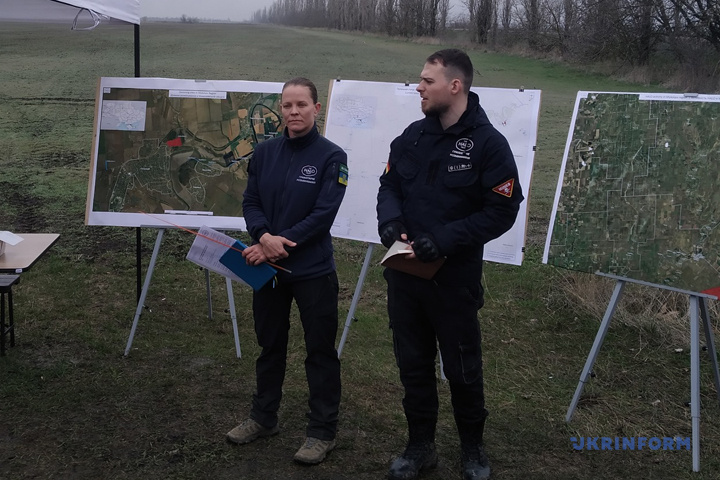
April Perkins, Head of Operations for the Southern Region, said that the HALO Trust began its activities in Ukraine in 2015, in the Donbas region. After the full-scale invasion began, they moved their staff from Kramatorsk, where they had an office, to the central region, to Brovary. Since then, they have significantly expanded their activities and now operate in seven regions of Ukraine, including the southern part of the country, in Mykolaiv and Kherson regions.
- These regions are considered to be the most explosively contaminated areas in Ukraine. That is why a large number of unpleasant incidents occur here. In Mykolaiv region alone, 75 accidents occurred when people were blown up by unexploded ordnance. So today I am very honored to participate in the transfer of 13 plots of demined land to the communities of the region, where they can work safely," said Perkins.
She also added that demining work is currently underway at 15 sites.
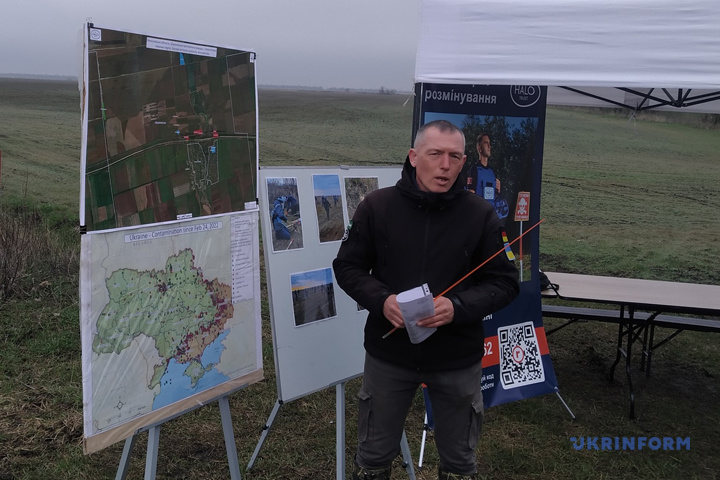
Oleksiy Davydovych, Chief Demining Team Leader, spoke in more detail about the areas that were transferred to the communities.
- On March 19, 2023, an accident occurred here. Then, for the first time since de-occupation, farmers decided to cultivate the field. One of the tractor drivers hit a mine with his harrow. After that, a manual demining group started working here. The area of this site is 27,500 square meters. Together with the adjacent territories, 36,500 square meters were cleared of ammunition. In the course of the work, we found three TM-62M anti-vehicle mines with anti-personnel ammunition traps under them. Mine clearance in this area was carried out with the financial support of the Buffett Foundation from the United States and Germany," said Davydovych.
According to him, a nine-member manual demining team worked here for almost two months.
A ROBOT TO HELP DEMINERS
Nataliia Rudenko is a hairdresser and makeup artist by profession. But she has received appropriate training and now works as a deminer-paramedic. Her group detects explosive devices and marks their location. Other units are responsible for neutralizing them.
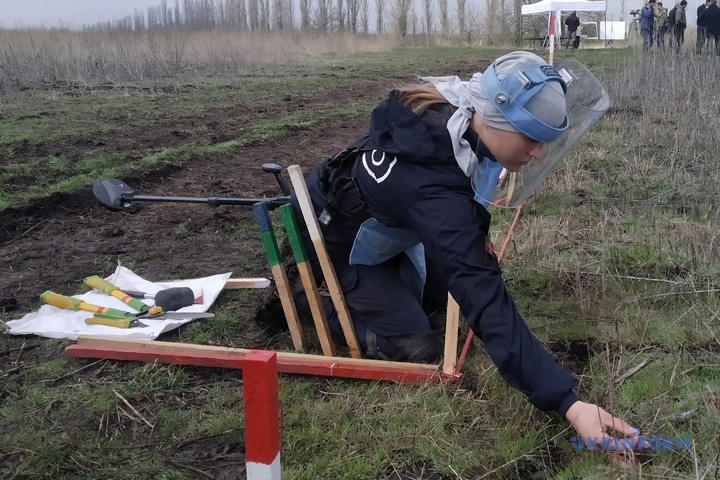
- I like the process of work and the way they treat security issues here. If you follow a set of standard operating procedures, the likelihood of a bombing is minimal. We also have gender equality here. Physical strength is only needed to carry a bag of equipment. Then you need other qualities, such as endurance, patience, and attentiveness. It is very painstaking work, sometimes you have to pick every blade of grass with your hands for a long time," Nataliia says.
To confirm her words, she demonstrated one of the methods of searching for stretch marks using a special probe.
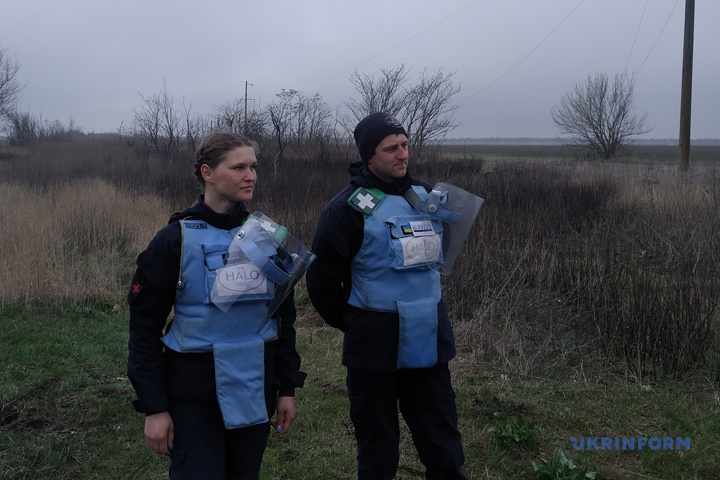
This fragile girl also knows how to operate robocats, which are mechanical demining devices that have different purposes. Some remove the grass cover on a mined area, while others can neutralize explosive objects of a certain class.
Nataliia Rudenko has had many extraordinary situations in her practice, but the most memorable was when a caterpillar flew off a robocat.
- It was raining heavily, but we were still working. The ground turned into a solid mud that stuck to the caterpillar. At some point, our robocat could not stand it and simply "took off its shoes". This happened in an area that hadn't been cleared yet, so we had to use manual demining to make a path to it, put on the caterpillar, and only then use it further," Nataliia recalls.
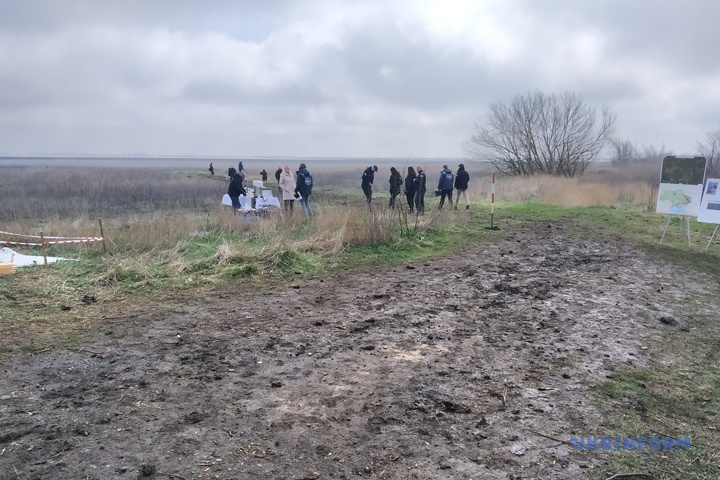
Her colleague is Vladyslav Makovkin, an IDP from Druzhkivka, Donetsk Oblast. He also graduated from the deminer and paramedic courses.
- After the outbreak of full-scale war, my wife and I moved to Kyiv. I found out from my friends that the HALO Trust organization was relocating from Donetsk region to Brovary, which is near the capital. I got a job there and have been working there for a year. I participated in demining in Kyiv and Kharkiv regions. But most of all - Mykolaiv region. We work on a shift basis: ten days in four," Vladyslav says.
At the request of journalists, he also demonstrated how deminers work using a regular metal detector and protective equipment.
VEGETABLES AND WATERMELONS WILL BE GROWN ON THE CLEARED FIELD
While the conversation was going on, it was time to sign the documents on the transfer of the demined areas. At some point, the bright sun broke through the thick clouds, as if the heavens were happy to see the fields return to peaceful labor.
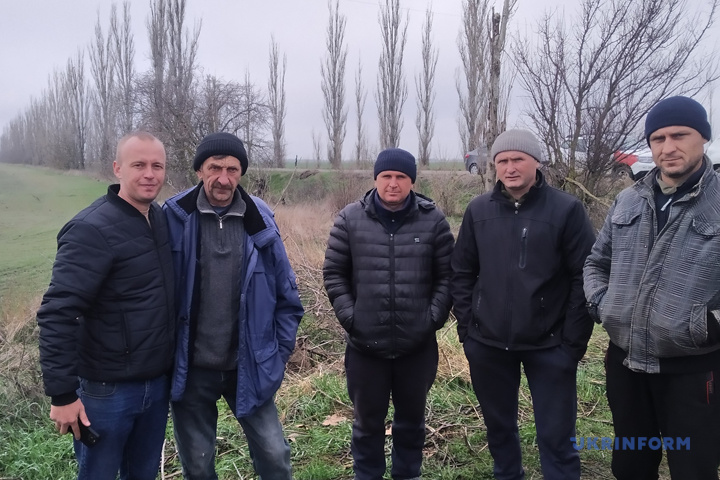
We meet Artem Pekar, the head of a farm that is part of the PAEK group of companies. He says that about 1,500 hectares of their land in the Snihuriv district were under occupation.
- On March 17, 2022, the village of Novopetrivka was occupied. We temporarily left. But as soon as the territory was liberated, we returned and started working. Before the Great War, we grew sunflower on 700 hectares and grain on another 800 hectares. After the de-occupation, we met with our guys, talked and decided that we first needed to cultivate at least 50-60 hectares of land so that the farm could exist, because there was no other way out. We cannot leave this land because we grew up on it, it fed our families. So, despite the danger, we started working. We were blown up several times, and there were even repeated incidents where we had already tilled," says the farmer.
He also notes that the earth tends to push metal to the surface, so they are constantly finding something in the fields. Today, thanks to the HALO team, almost the entire area of farmland has been cleared, except for 20 hectares.
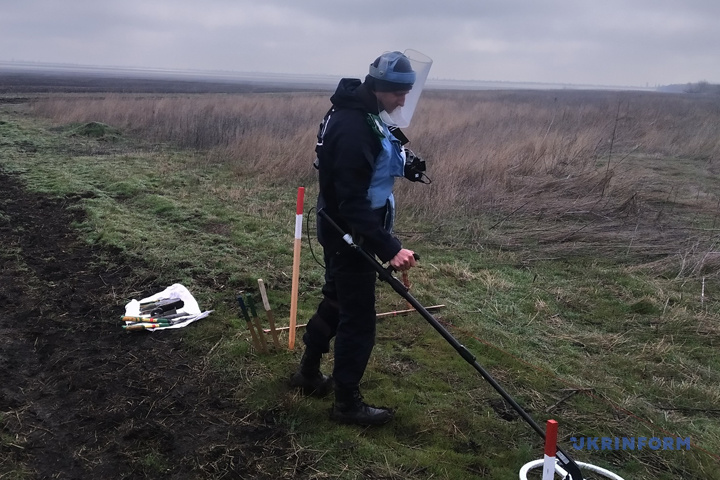
Before the Great War, the farm employed 17 people, and today it has 35. The increase in the number of employees is due to the fact that they decided to grow vegetables and watermelons. It is planned to allocate 100 hectares for them.
- We all know that large areas in the Kherson region are now out of cultivation. So we want to lend a hand so that our fellow citizens do not experience an acute shortage of this delicious and healthy berry. Watermelons have always been considered a product from Kherson region, and we want to make sure that they are also from Snihuriv region," the farmer shares his plans.
He says that they will also be growing vegetables of the "borsch set", including cabbage, carrots, tomatoes, and onions.
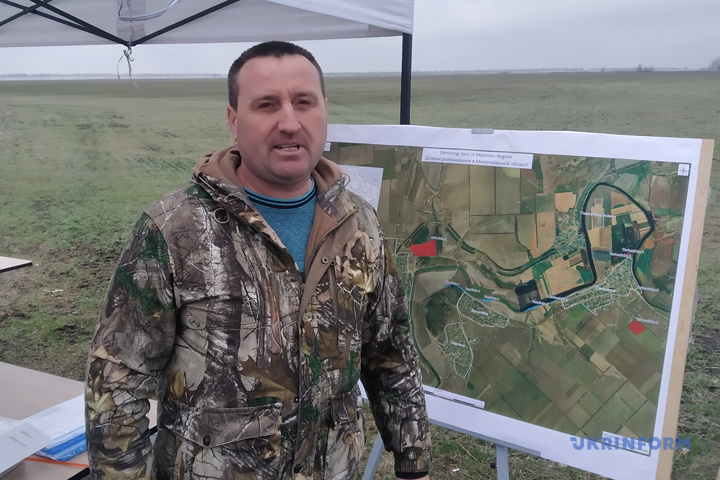
Ivan Hentosh, the head of the Vasylivka starosta district of the Snihuriv community, is very grateful for the work of the HALO Trust Ukraine deminers. He is in charge of three villages: Pavlo-Maryanivka, Vasylivka and Yevhenivka, which were under occupation for a long time, until the liberation of Snihurivka. Therefore, the Russian invaders had plenty of time to set up their deadly hardware here. And later, these settlements also suffered significant damage after the Kakhovka hydroelectric power plant was blown up. The water level here sometimes exceeded three meters. No wonder many people were forced to leave their homes. Now people are gradually returning. But if before the Great War more than 2,250 people lived here, now only about half of them do.
- It is difficult to overestimate the work of HALO in this area, because people were often injured by mines here. Their team has already cleared about three kilometers of territory along the Ingulets River from Vasylivka to Yevhenivka. They have collected over 260 pieces of explosive ordnance, mostly anti-tank and anti-personnel mines. Further from Yevhenivka to the border with Kherson region, about 500 hectares of land still remain contaminated. "This will take years of work," says the starosta.
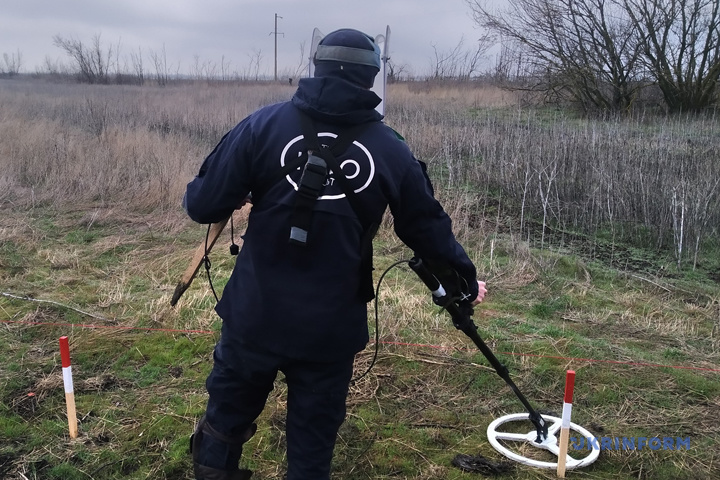
According to the RMA, more than 750,000 hectares of land in Mykolaiv region are potentially mined, which is 30 percent of the territory. Of these, 288,000 hectares are agricultural land. At the beginning of this year, more than 112 thousand hectares were surveyed.
Still, there is hope that further demining will proceed more quickly. After all, while until recently HALO Trust Ukraine was only able to detect explosive devices, it has now received permission to destroy them on its own.
Alla Miroshnychenko, Mykolaiv - Novopetrivka
Photo by the author

